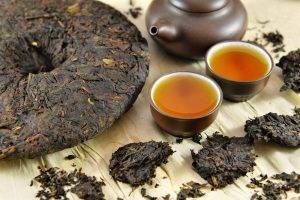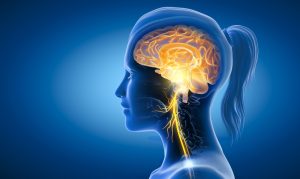Delving into the world of gluten disorders, we spotlight five crucial facts that every Asian must be aware of.
While the buzz around gluten-related disorders, including celiac disease, has predominantly echoed in Western spheres, however, it’s increasingly becoming a topic of concern in Asia. As dietary habits evolve and globalisation impacts our food choices, understanding these disorders is paramount for Asians.
This article delves into five essential facts, shedding light on the prevalence, symptoms, and cultural nuances of gluten-related disorders within the Asian community. With this in mind, individuals can make informed decisions, ensuring their well-being and that of their loved ones.
1. Prevalence of Celiac Disease in Asia
Historically, celiac disease, an autoimmune disorder triggered by gluten consumption, was more commonly diagnosed in Western populations. Yet, recent research indicates its increasing prominence in Asia.
A study published in 2016 highlighted the emerging recognition of celiac disease in Asian countries, suggesting its prevalence might be underestimated due to the lack of awareness and diagnostic facilities. Moreover, changes in dietary habits, especially the growing consumption of wheat and wheat-based products, might be contributing factors to this rise. As dietary patterns shift in Asia, it’s vital to understand and address the associated health implications.
2. Symptoms of Celiac Disease Can Vary Widely
Celiac disease manifests in a variety of ways, and its symptoms can be diverse and sometimes deceptive. “Gastrointestinal discomfort and digestive problems often occur, but people with celiac disease can also feel fatigue, headaches, joint pain, and skin rashes.
Early recognition and intervention are vital for effective management. In Asian populations, there is a tendency to attribute these symptoms to stress or general fatigue, potentially delaying diagnosis and treatment. Therefore, it’s imperative to raise awareness about the breadth of symptoms and the importance of timely testing.
3. Long-Term Health Implications of Untreated Celiac Disease
Untreated celiac disease doesn’t merely result in short-term discomfort; it has the potential to lead to grave health complications over time. Prolonged exposure to gluten in affected individuals can increase the risk of osteoporosis, infertility, and even certain malignancies like small bowel cancer.
Thus, it’s paramount for individuals diagnosed with celiac disease to adhere strictly to a gluten-free diet and undergo regular health check-ups to prevent these serious health implications.
4. Gluten-Free Does Not Mean Nutrient-Free
Choosing gluten-free doesn’t automatically translate to a nutrient-rich choice. While gluten-free products provide an essential dietary alternative for those with celiac disease, some of these products might have elevated levels of sugars, fats, or might be deficient in vital nutrients.
Especially in Asian contexts, where staples like rice are integral to the diet, approach gluten-free substitutes with discernment. Individuals should ensure that their nutritional needs are met without compromising health.
5. Cultural Challenges and Awareness
In Asian cultures, communal meals and festive feasts are deeply rooted traditions, often reflecting cultural, historical, and familial ties. Nevertheless, the widespread presence of gluten in numerous customary dishes presents challenges for individuals with celiac disease or other gluten-related disorders. As celiac disease gains recognition in the region, there’s an increasing need to raise awareness and adapt culinary practices. Incorporating gluten-free alternatives not only caters to dietary needs, but also promotes a more inclusive and understanding society.
Worth Reflecting On
Understanding gluten-related disorders, its implications, and the nuances associated with it in Asia can be enlightening. Awareness is the first step towards a healthier, gluten-free lifestyle. By staying informed, Asians can make better dietary choices and promote well-being in their communities.
References
- Saturni, L., Ferretti, G., & Bacchetti, T. (2010, January 1). The gluten-free diet: safety and nutritional quality. PubMed; National Institutes of Health. https://doi.org/10.3390/nu20100016
- Green, P. H. R., & Cellier, C. (2007, October 25). Celiac Disease. The New England Journal of Medicine; Massachusetts Medical Society. https://doi.org/10.1056/nejmra071600
- Makharia, G., Mulder, C. J., Goh, K. L., Ahuja, V., Bai, J. C., Catassi, C., Green, P. H. R., Gupta, S. D., Lundin, K. E., Ramakrishna, B. S., Rawat, R., Sharma, H., Sood, A., Watanabe, C., & Gibson, P. R. (2014, March 20). Issues associated with the emergence of coeliac disease in the Asia-Pacific region: A working party report of the World Gastroenterology Organization and the Asian Pacific Association of Gastroenterology. Journal of Gastroenterology and Hepatology; Wiley-Blackwell. https://doi.org/10.1111/jgh.12514
- Ludvigsson, J. F., Leffler, D. A., Bai, J. C., Biagi, F., Fasano, A., Green, P. H. R., Hadjivassiliou, M., Kaukinen, K., Kelly, C. P., Leonard, J., Lundin, K. E., Murray, J. A., Sanders, D. S., Walker, M. M., Zingone, F., & Ciacci, C. (2012, February 16). The Oslo definitions for coeliac disease and related terms. Gut; BMJ. https://doi.org/10.1136/gutjnl-2011-301346














